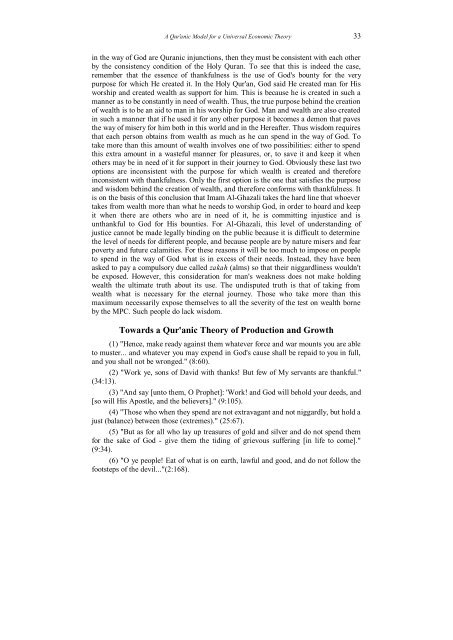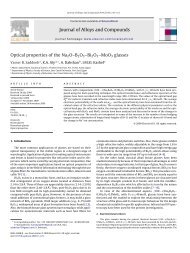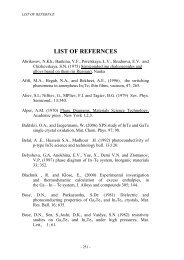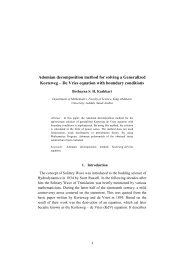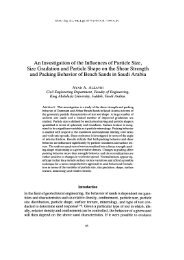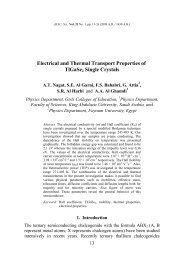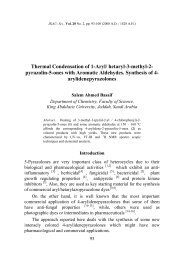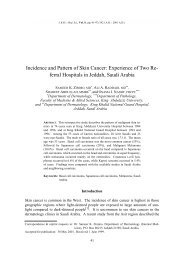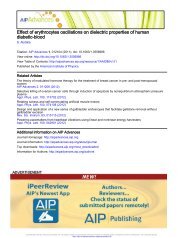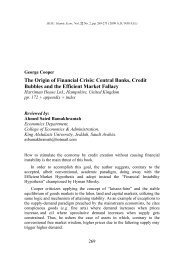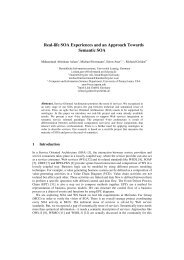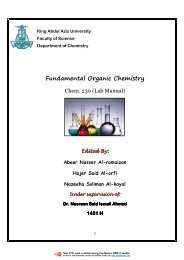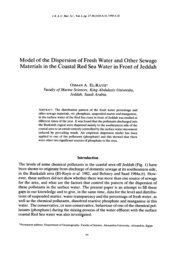A Qur'anic Model for a Universal Economic Theory
A Qur'anic Model for a Universal Economic Theory
A Qur'anic Model for a Universal Economic Theory
You also want an ePaper? Increase the reach of your titles
YUMPU automatically turns print PDFs into web optimized ePapers that Google loves.
A Qur’anic <strong>Model</strong> <strong>for</strong> a <strong>Universal</strong> <strong>Economic</strong> <strong>Theory</strong> 33<br />
in the way of God are Quranic injunctions, then they must be consistent with each other<br />
by the consistency condition of the Holy Quran. To see that this is indeed the case,<br />
remember that the essence of thankfulness is the use of God's bounty <strong>for</strong> the very<br />
purpose <strong>for</strong> which He created it. In the Holy Qur'an, God said He created man <strong>for</strong> His<br />
worship and created wealth as support <strong>for</strong> him. This is because he is created in such a<br />
manner as to be constantly in need of wealth. Thus, the true purpose behind the creation<br />
of wealth is to be an aid to man in his worship <strong>for</strong> God. Man and wealth are also created<br />
in such a manner that if he used it <strong>for</strong> any other purpose it becomes a demon that paves<br />
the way of misery <strong>for</strong> him both in this world and in the Hereafter. Thus wisdom requires<br />
that each person obtains from wealth as much as he can spend in the way of God. To<br />
take more than this amount of wealth involves one of two possibilities: either to spend<br />
this extra amount in a wasteful manner <strong>for</strong> pleasures, or, to save it and keep it when<br />
others may be in need of it <strong>for</strong> support in their journey to God. Obviously these last two<br />
options are inconsistent with the purpose <strong>for</strong> which wealth is created and there<strong>for</strong>e<br />
inconsistent with thankfulness. Only the first option is the one that satisfies the purpose<br />
and wisdom behind the creation of wealth, and there<strong>for</strong>e con<strong>for</strong>ms with thankfulness. It<br />
is on the basis of this conclusion that Imam Al-Ghazali takes the hard line that whoever<br />
takes from wealth more than what he needs to worship God, in order to hoard and keep<br />
it when there are others who are in need of it, he is committing injustice and is<br />
unthankful to God <strong>for</strong> His bounties. For Al-Ghazali, this level of understanding of<br />
justice cannot be made legally binding on the public because it is difficult to determine<br />
the level of needs <strong>for</strong> different people, and because people are by nature misers and fear<br />
poverty and future calamities. For these reasons it will be too much to impose on people<br />
to spend in the way of God what is in excess of their needs. Instead, they have been<br />
asked to pay a compulsory due called zakah (alms) so that their niggardliness wouldn't<br />
be exposed. However, this consideration <strong>for</strong> man's weakness does not make holding<br />
wealth the ultimate truth about its use. The undisputed truth is that of taking from<br />
wealth what is necessary <strong>for</strong> the eternal journey. Those who take more than this<br />
maximum necessarily expose themselves to all the severity of the test on wealth borne<br />
by the MPC. Such people do lack wisdom.<br />
Towards a <strong>Qur'anic</strong> <strong>Theory</strong> of Production and Growth<br />
(1) "Hence, make ready against them whatever <strong>for</strong>ce and war mounts you are able<br />
to muster... and whatever you may expend in God's cause shall be repaid to you in full,<br />
and you shall not be wronged." (8:60).<br />
(2) "Work ye, sons of David with thanks! But few of My servants are thankful."<br />
(34:13).<br />
(3) "And say [unto them, O Prophet]: 'Work! and God will behold your deeds, and<br />
[so will His Apostle, and the believers]." (9:105).<br />
(4) "Those who when they spend are not extravagant and not niggardly, but hold a<br />
just (balance) between those (extremes)." (25:67).<br />
(5) "But as <strong>for</strong> all who lay up treasures of gold and silver and do not spend them<br />
<strong>for</strong> the sake of God - give them the tiding of grievous suffering [in life to come]."<br />
(9:34).<br />
(6) "O ye people! Eat of what is on earth, lawful and good, and do not follow the<br />
footsteps of the devil..."(2:168).


